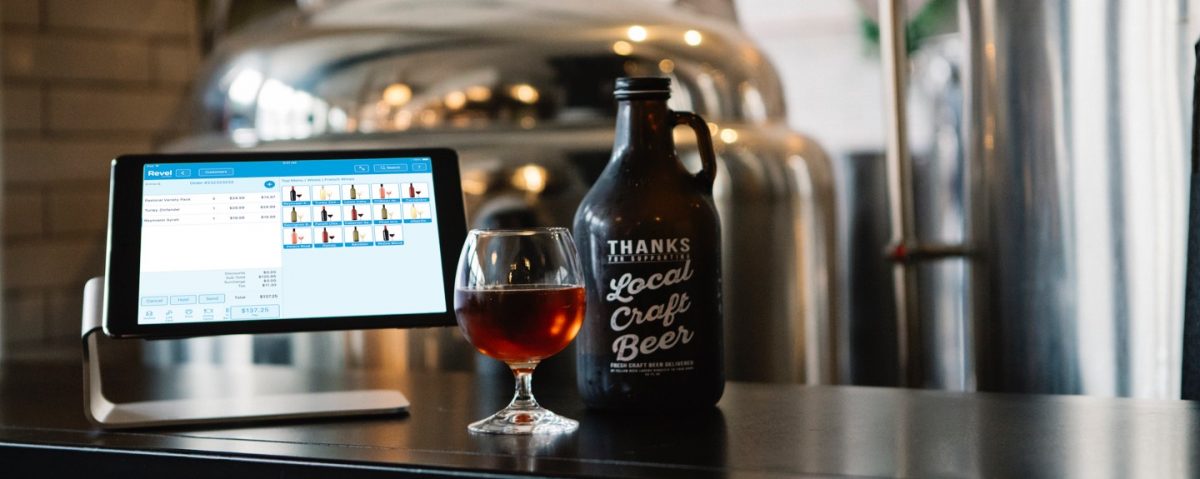Starting a brewery can be a fun and rewarding experience. Whether you are a home brewer looking to turn your passion into profit or an experienced industry professional hoping to break out on your own, opening your own brewery is an exciting time.
The brewery and craft beer industries are highly competitive, however, and it is important to have an understanding of your business goals before you get started. A well-thought-out brewery business plan can help you lay out those goals clearly and define how you plan to achieve them.
Below, you will learn about the key components of a good business plan. If you get stuck, check out this brewery business plan template to get you started.
The Basics of a Brewery Business Plan
So, what exactly is a brewery business plan? Put simply, any business plan is a document that describes what a business wants to achieve and how it will achieve it. A good business plan will include information about topics like what you plan to sell, who you want to sell to, and your strategies for promoting your products or services. It will also include financial information, such as your expenses and planned growth.
A business plan can be used both inside and outside of your brewery. Internally, it is a great resource for tracking your business progress and sharing your goals with a team. Externally, you can present your business plan to banks and investors who want proof that you have clear goals and methods for reaching them in place before offering financial backing.

Key Sections of a Brewery Business Plan
Keep in mind that every business plan is unique. A microbrewery business plan will look different than a brewpub business plan, but there are certain components that should be included in most any good business plan. By including these key sections, you can ensure that your business plan will be effective regardless of your brewery's focus.
- Executive Summary: The executive summary is a brief overview of your brewery business plan. You can think of it as a clear and concise introduction to your plan and the information that you will expand on later in the document. Just remember that an executive summary is the first thing that many readers, including potential investors, will see so it should make a good impression.
- Company Overview: In the company overview, you will provide some basic information about your brewery. This might include your brewery's name, location, and a brief history if it already exists. You will also want to describe your brewery's mission or purpose. For example, are you focused on brewing unique beers or providing a great experience for customers in your taproom? The company overview is also a great place to include any achievements or goals your brewery has already reached.
- Industry Analysis: The industry analysis is where you will take a closer look at the brewery business in general. This section should include information about things like the size of the craft beer industry, any recent trends, and your brewery's place within the larger industry. Doing your research and including this information in your business plan can help you better understand your position in the market and how to reach your target customers.
- Customer Analysis: In the customer analysis section, you will want to focus on who your brewery's target customers are. You could include information about their age, income level, location, and any other demographic data that is relevant to your brewery. By understanding your target customers, you can more effectively market your brewery to them.
- Competitive Analysis: In the competitive analysis, you will take a look at other breweries that produce similar products to yours. This information can help you better understand your place in the market and how to set your brewery apart from the competition. Be sure to include information about things like what other breweries are selling, their prices, and their marketing strategies. Conducting a SWOT (strengths, weaknesses, opportunities, threats) analysis can be helpful when working on this section.
- Marketing Plan: Your brewery's marketing plan will detail how you plan to reach the target customers you defined in the customer analysis and stand out from the other breweries you defined in the competitive analysis. This section might include information about your brewery's branding, social media strategy, advertising campaigns, and any other marketing initiatives you have in place. Just be sure to keep your target customers in mind when deciding how to market your brewery. Some demographics might respond better to social media campaigns while others will be drawn in with locally-distributed flyers.
- Operations Plan: The operations plan is where you will detail how your brewery will actually produce beer and run on a day-to-day basis. This section might include information about your brewery's equipment, brewing process, packaging, and distribution. You might also list quality control measures, key software, and employee management tools. If you are planning to open a new brewery, this section might also include build-out plans and information about permits and licenses.
- Management Team: In the management team section, you will want to introduce the people who will be running your brewery. This might include the brewery's owners, brewmaster, and sales staff. You can also include information about their experience in the industry and any relevant qualifications they have.
- Financial Plan: The financial plan is one of the most important sections of your brewery business plan. This is where you will include information about your brewery's start-up costs, operating expenses, sales projections, and financing needs. If you are seeking investors or loans for your brewery, this section will be especially important. Be sure to include as much detailed information as possible so that potential investors can make an informed decision about your brewery.
Taking the time to put together a solid brewery business plan can help you ensure the success of your brewery in the long run. Just keep these key components in mind and you'll be well on your way to creating a business plan that helps define and achieve all your business goals.
Complete Your Brewery Operational Plan with Revel Systems
An important part of your brewery business plan will be defining how you plan to operate your new business. Revel's POS system makes filling orders, managing inventory, and all your other day-to-day operational tasks easier.
The right POS system will also help you deliver a better customer experience and make it easier to scale your business. Let your business plan's readers and potential investors know that you've done your homework and include Revel in your operational plan. Request a free demo today, and a Revel product experts will be happy to help you with those proof points!

